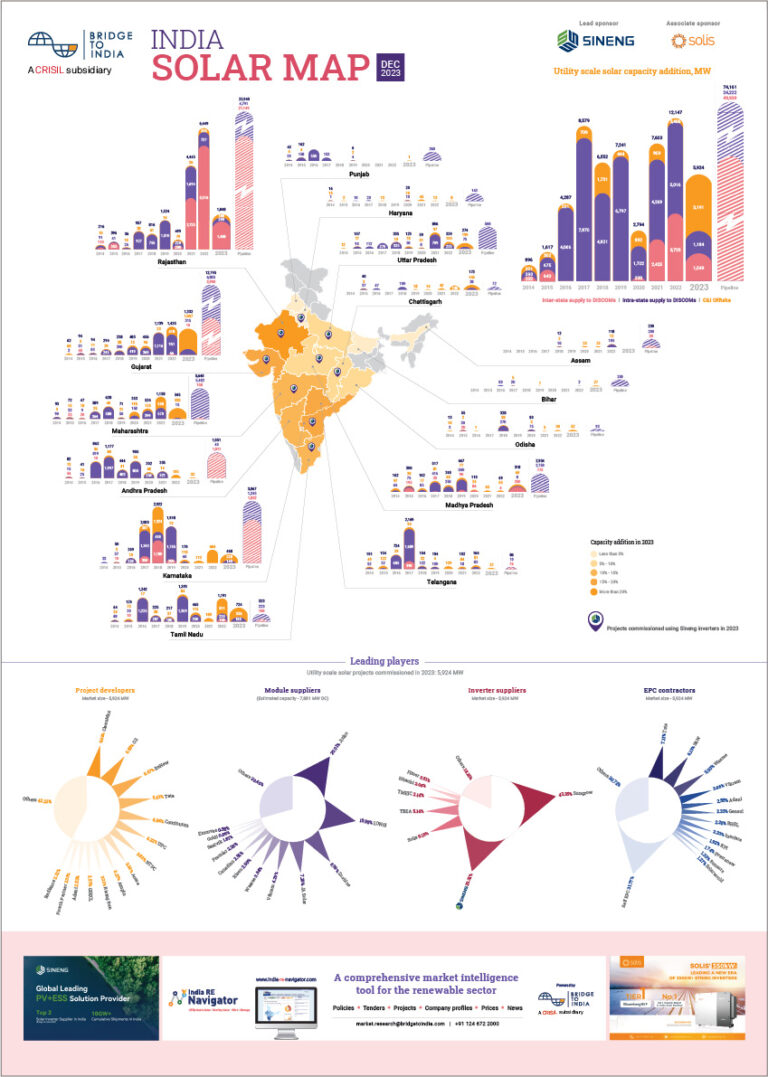Mr. Piyush Goyal, Minister for New and Renewable Energy, announced last week that the government plans to waive interstate transmission charges for electricity generated by renewable sources (refer). This waiver was earlier included in the proposed amendments to the country’s existing tariff policy of 2005 (refer), but the amendments are yet to be approved. However, for speedy promotion of renewable energy projects, the central government is actively moving to implement amendments such as the waiver of interstate transmission charges that are under its control.
- To meet the 60 GW of utility scale solar target, interstate power transmission is essential and needs to be encouraged.
- Waiver of interstate transmission charges will allow developers to install solar projects in states with cheaper land (wasteland) and higher irradiation.
- The grid infrastructure will need to be strengthened to evacuate power. Waiver of transmission charges is a positive short term support for the sector but it is more important to make the necessary investment commercially viable for sustainable growth of the sector.
At present, solar projects are usually developed close to consumption centres within the same state. If the interstate transmission charges are waived, greater number of solar projects will be installed in states which are providing better economics to project developers, leading to higher concentration of solar projects in those select states, for example, Rajasthan, Gujarat, Madhya Pradesh, Andhra Pradesh and Telangana. However, these states cannot necessarily absorb the higher capacity of intermittent power in local load centres. The role of interstate transmission of power will thus become crucial as the penetration increases. The incentive in the form of free transmission of power will therefore provide a major boost to the solar sector.
Figure 1: Target of 60 GW utility scale segment by 2022

A good example of the benefit of this waiver will be solar power procurement for the state of Delhi. Land in Delhi is expensive and scarcely available. The power distribution companies of Delhi plan to buy solar power from projects set up in states such as Madhya Pradesh and Rajasthan. Waiver of transmission charges could result in lowering of solar power tariff by up to 10%.
Obviously, free transmission is a positive move for the sector but this policy should be seen only as a short term incentive. The inter-state transmission corridors need massive investment, estimated at INR 430 bn covering the states of Tamil Nadu, Karnataka, Andhra Pradesh, Gujarat, Maharashtra, Rajasthan, Himachal Pradesh and Jammu & Kashmir (refer). This investment needs to be commercially viable to make the long-term prospects of solar energy sustainable.












